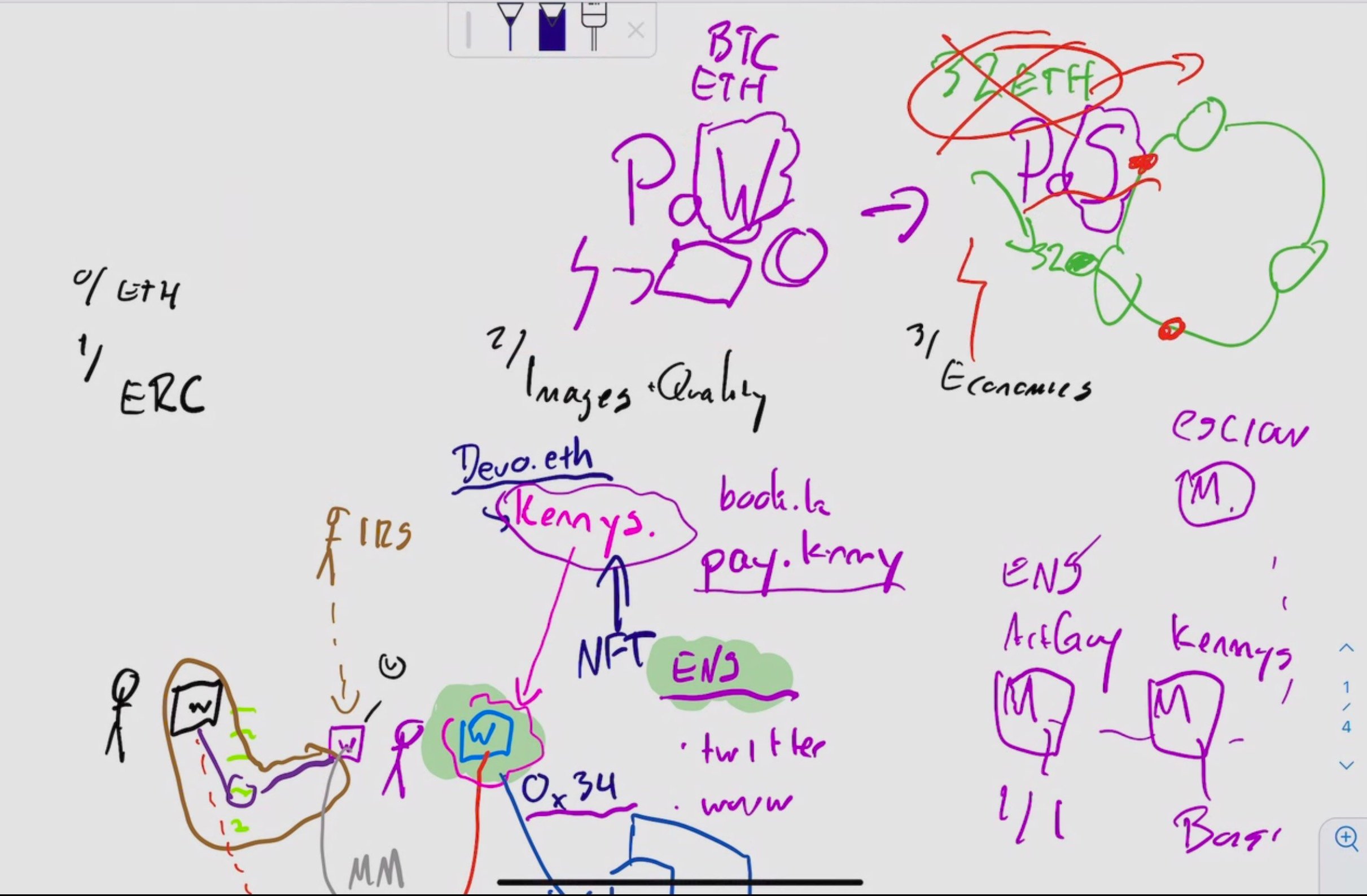
For all you luddites (including me, only a few months ago) who are new to the world of crypto art, here is a partial glossary of NFT terms—one that will undoubted need updating before this is even posted.
Terms
Dry powder = cash
Alpha = new information
A3 = highest res
ETH “plumbing” = the application standards for Ethereum that include token standards, name registries, library/package formats. Two such standards are ERC (Ethereum Request for Comments) and EIP (Ethereum Improvement Proposals)
ERC 721 = the standard for NFT smart contracts (ERC 20 is for fungible assets)
IPFS = the InterPlanetary File System, a peer-to-peer computer network for storing and sharing data in a distributed record-keeping system
Breadcrumbs = a digital trail on the blockchain reflecting the history of transactions
ENS = the ETH Name Service, which allows you to name your wallet address something other than a seemingly endless string of numbers and letters
Maker DAO Project = an ETH linked to a CDP (Collateralized Debt Position), which is a stable coin pegged to one US dollar, utilized to hedge your crypto
Metaverse = Why not just go the full digital and never leave your house? You can move to the metaverse, where just like in the “real” world you can buy property and construct buildings all using crypto money in the form of NFTs. Like in New York City, it’s all about location, location, location, where you want to be the best-situated and build a Larry G.-scale gallery (though that will set you back beaucoup bucks)
Hash = in mining crypto miners compete against each other to solve complex mathematical problems
Hashmasks = a series of NFTs initially bought sight-unseen that come with the ability to be named after its owner like the Codex Leicester, the da Vinci’s codex owned by the Earl of Leicester (and now owned by Bill Gates). When you sell, the new owner can change the name but needs separate tokens (NCT) to do so.
Gas = real-time cost of transactions bases on supply and demand, like credit card fees charged to vendors
Gas Tracker = a service showing the cheapest times to transact. Look for gas tracker to go below 100.
Etherscan = a website that tracks when gas is at its lowest, which one techie told me “should be your best friend”
PoW = Proof of Work predates cryptocurrency blockchains and was originally developed as an idea for a process to counter junk mail. The essential concept is that in order to use a particular service—to send an email, for example, or to add transactions to a blockchain—one has to show that some form of work has been carried out. The goal is to inflict a modest cost (in terms of the computing power required to run the PoW algorithm) on the person wanting to use the service once, but to make it very expensive for someone to use the service thousands or millions of times. This makes it cost-prohibitive to attack or disrupt Proof of Work systems.
PoS: Proof of Stake, where the idea is to make miners stake their cryptocurrency as an entry ticket for adding blocks to the blockchain and earning transaction fees. The penalty for adding invalid transactions to the blockchain ledger is the loss of the coins staked. This uses less power to compute and, hence, yields lower gas fees.
Bitcoin pizza = early in the crypto world someone used 10,000 bitcoin to buy a pizza to demonstrate that you can buy something with crypto, an amount that today would be worth a fortune
Doxxing = the act of revealing identifying information about someone online, such as their real name, home address, workplace, phone, financial, and other personal information, which could in turn be used for real-life crime!
DeFi = decentralized finance
Loot box = a transaction in which you don’t know what NFT you bought until it’s revealed after purchase
NCT = name-change tokens within the Hashmask
Rug pull = a scam
NIFTX = NFT exchange is a platform to get fungible crypto tokens (financing) off your NFT collection
Chad = a generally young alpha-male crypto asshole
Stacey = the female counterpart to a Chad (hey, I am just the reporter here!)